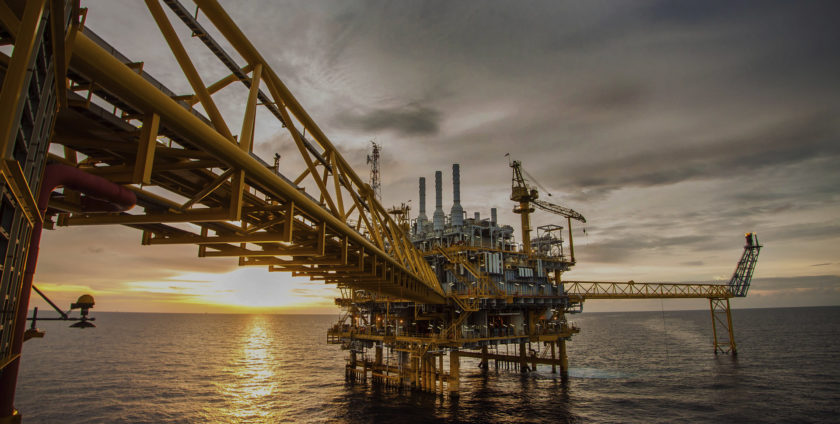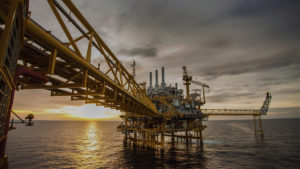
- By: News
- 0 comment
- Standard Bank has been singled out for still considering financing the East African Crude Oil Pipeline project.
- Standard Bank says its participation is subject to findings of environmental and social due diligence assessments.
- The project is a collaboration between Total and China National Offshore Oil Corporation, and will export oil from Uganda to Tanzania.
Of South Africa’s five major banks, Standard Bank has been singled out by critics for considering funding an oil pipeline project in East Africa.
The project known as the East African Crude Oil Pipeline (EACOP) is a collaboration between French energy company TotalEnergies, the China National Offshore Oil Corporation (CNOOC) as well as the Uganda National Oil Company (UNOC) and Tanzania Petroleum Development Corporation (TPDC).
It spans 1 443km and will be used to transport crude oil from Uganda to Tanzania for export.
However, an alliance of activists known as #StopEACOP has warned that the pipeline would displace communities and have a severe impact on climate and wildlife. The alliance is made up of organisations such as human rights and environmental lawyers Natural Justice, environmental activists 350Africa.org and activist shareholder group JustShare.
According to #StopEACOP, a $2.5 billion (~R38 billion) loan is being sought from the world’s largest commercial banks to support the project.
On its website #StopEACOP indicates that Standard Bank is among key players arranging finance for the project.
In response to questions from Fin24 about its involvement in the EACOP, Standard Bank said its participation in the funding of the project “remains subject to the findings of environmental and social due diligence assessments,” as well as it meeting the Equator Principles requirements. The Equator Principles are the financial industry benchmark for assessing and managing Environmental and Social (E&S) risks in projects.
Standard Bank explained that the Equator Principles Project Finance deals are subject to due diligence assessments that inform decision-making and cover various areas such as legal, technical, security, market as well as environment and social risks.
“Financial advisors, including Standard Bank, and potential lenders retained the services of an independent E&S advisor. As part of this process, the advisors have visited the project area and will issue a full due diligence report in the coming months, at which time potential lenders will make a decision on the way forward,” the bank said.
Furthermore, the bank’s involvement is subject to a “full assessment” of the EACOP sponsors’ climate change strategies and targets.
Standard Bank said it is committed to “maximising opportunities” for sustainable and inclusive growth, while managing the risks posed by climate change. The bank will publish its climate change targets at the end of the first quarter.
Robyn Hugo, director of climate engagement at JustShare highlighted that Standard Bank’s current fossil fuel financing policy does not include “ambitious financing exclusions”.
“A credible assessment that is truly aligned with the Paris goals, would exclude the provision of finance to this highly-destructive project,” said Hugo.
Other banks which have been identified as actively supporting the project include Japan’s Sumitomo Mitsui Bank and the Industrial and Commercial Bank of China.
Absa, Investec, Nedbank and FirstRand are among those listed by #StopEACOP as not supporting the EACOP.
Absa told Fin24 it would not be commenting on the matter, while Nedbank confirmed it “has no involvement” in the EACOP project. Nedbank’s new energy policy, aims to over exit fossil fuels over time, while scaling up renewable energy financing.
FirstRand confirmed it is not financing the EACOP. It referred Fin24 to its policy on energy and fossil fuels financing, which indicates that it will not finance the development, construction or expansion of oil and gas that would be high cost and high carbon intensity and would be incompatible with Paris Accord obligations. The policy also includes a list of other exclusions such as shale oil and shale gas fracking in water-scarce areas, and developments in sensitive polar regions.
Investec also indicated it is not funding the pipeline and currently has not intention to.
According to a press release from Total Energies, the project forms part of the greater Lake Albert Development Project which requires an investment of $10 billion (about R154 billion).
The EACOP website indicates that crude oil produced in Uganda will be partly refined in the country to supply the local market and the rest will be exported to the international market via the pipeline, in which TotalEnergies has the biggest share (62%).
The project would extract 200 000 barrels per day and produce 34 million tons of carbon emissions each year, adding to the climate crisis.
SOURCE:
Activists call out Standard Bank for mulling over east Africa oil pipeline | Fin24 (news24.com)



